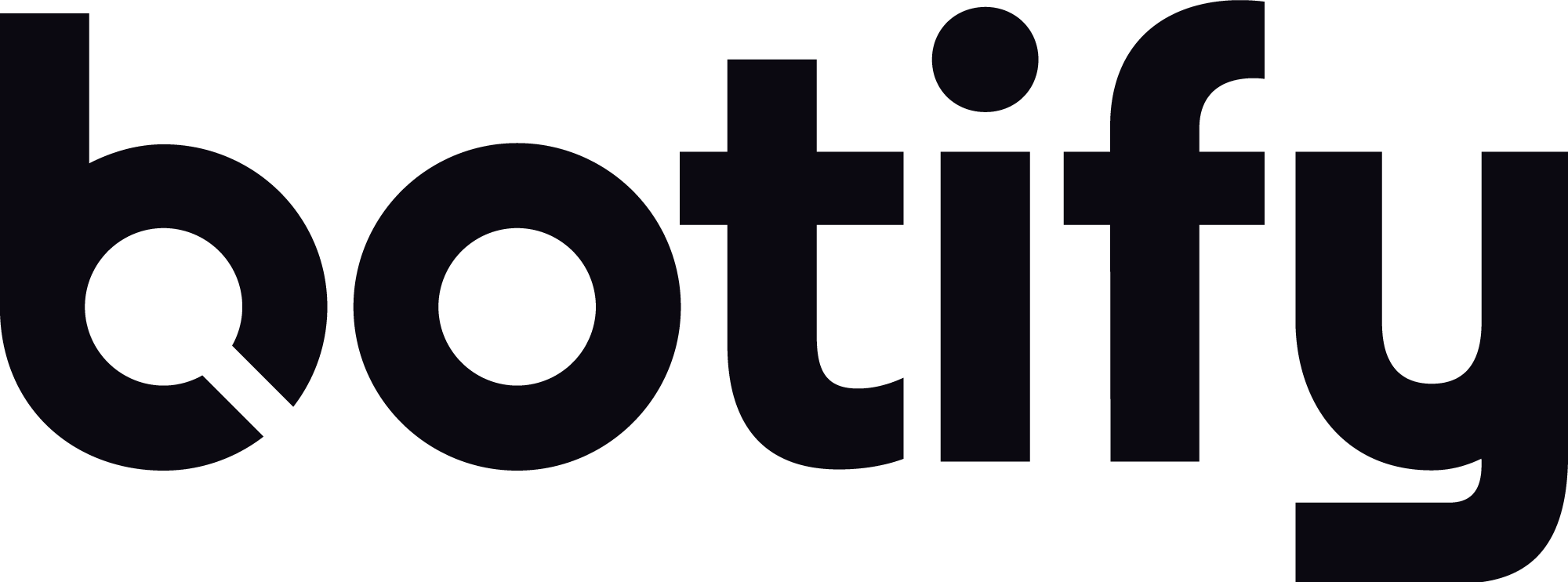Have you ever felt discouraged from submitting a speaker pitch, applying for a certain job, or even sharing your thoughts on Twitter for fear that you’re not good enough?
That feeling often has its roots in a lack of representation.
I recently chatted with Areej AbuAli, Founder of Women in Tech SEO, to discuss this issue of representation in the SEO industry, why diversity is so important, and steps we can all take to do something about it.
Diversity in our companies
Imagine that you’re about to walk into an interview for your dream job. You’re nervous, but confident that you’d be a great fit for the role.
You’re escorted to the conference room where your interview will take place, and seated across from you at the table are three people who look nothing like you.
How would that make you feel?
Maybe you start to question whether you’re good enough for the job, maybe you get intimidated and start to stumble over your words, maybe you’re even questioning whether you even want to work for this company anymore… maybe all of the above.
That, said Areej, is a perfect example of the lack of diversity in SEO (and beyond!).
“Right away, as a candidate, that would make me feel really out of place.”
But even when companies do prioritize hiring for diversity, it’s not uncommon for them to stop there.
“From my experience,” Areej told me, “you tend to find diversity in the more junior SEO roles. The more senior you get though, the less that diversity becomes visible.”
This of course may not be true in everyone’s experience, but Areej says she tends to notice that executive leadership teams are fairly homogeneous, and people who don’t look like them tend to be promoted less often than those who do.
“If the people who make the ultimate decisions at a company all look the same, then there isn’t going to be much of a change.”
She says she sees this lack of diversity in agency pitches as well. “It seems common for clients to get pitched by less diverse members of the team, which might be related to that lack of diversity in more senior roles.”
Diversity on our public platforms
Another area we need to focus on promoting diversity is on our public platforms like events, publications, and social media.
“Conference lineups in particular,” said Areej, “really highlight the diversity issue that the SEO industry has.”
She described her experience attending SEO conferences, and noticing that she barely ever saw herself represented on stage.
“I’d always pick the technical SEO track, and none of the speakers ever really looked like me. Because I didn’t see myself represented, I wasn’t motivated or inspired to go submit speaking pitches.”
The more technical or advanced she’d try to go into a topic, the rarer it was to find diversity amongst the experts who were publicly sharing their thoughts.
Areej explained that, in large part, that was the impetus for starting Women in Tech SEO, which she describes as a “a support network aimed for women in the technical SEO field in all stages of their career.”
“The more that underrepresented people see themselves represented in these types of venues, the more we’re going to have role models, and the more we’re going to feel inspired and encouraged to put ourselves out there in similar ways. But if you don’t see yourself represented, you’re less likely to want to put yourself out there.”
Areej and I then talked about the apprehension some conference organizers might have in booking “green” speakers for their events. Funny enough though, while organizers might feel that a lack of experience runs the risk of bringing down the quality of the event, it’s often the first-time speakers that bring the most value.
“First-time speakers give the best talks because they put so much effort, time, and energy into preparing their talk,” Areej explained. “Whereas your usual seasoned speaker will typically have this one talk, which might be awesome, but they go around and share it in a lot of different places.”
All of this inspired Areej to launch a community speakers hub, a place for women in SEO to get exposure to share their knowledge at more events, and a place event organizers can go to diversify their lineups.
But sadly, when Areej invited women to submit their profiles, imposter syndrome reared its ugly head.
“Some women felt they weren’t strong enough to submit a profile,” said Areej. “Thankfully, that changed when they saw the speaker hub. They were able to see a lot of profiles up there that weren’t your typical speakers who had spoken at a ton of big conferences, and were more encouraged to submit.”
That’s exactly why representation is so important. Until you see other people like you doing something, it’s incredibly hard to have the confidence and motivation to put yourself out there.


But it’s not just conferences that can give people imposter syndrome. It’s the social media platforms that are popular amongst SEOs as well, like Twitter.
“One of the other main reasons I started Women in Tech SEO is because I always felt very uncomfortable asking a technical SEO question on Twitter. I was always worried people would look me up and think ‘Woah! She’s meant to be an SEO Manager? She doesn’t even know her stuff if she’s asking something this basic!’”
That definitely resonated with me. I remember when I first started getting more opportunities to share my knowledge with the industry, the content I posted on more soft skills like communicating with clients were well-received, but when I shared content on more technical topics like site migrations, I would get “well, actually…” type responses — predominantly from men.
“It’s that scenario where someone will share a talk they’ve done or ask a question they have, and if that person were a woman or person of color, the response maybe isn’t that great,” said Areej, “but then you see a white dude who shares something very similar and instead gets tons of claps. I wouldn’t say it’s happening all the time, but I definitely think there’s a problem with bias.”
How has this changed over time?
That’s the state of things today, in 2020, but I was curious if Areej thought things had changed over the years.
“It does feel like diversity is being talked about more now in the SEO industry,” she said. “When something doesn’t feel right or appropriate, I feel that’s being called out more now.”
Areej also said she’s seeing the conference landscape change more over the years. For example, she told me that, while this isn’t something they advertised, the lineup for SearchLove London last year was a 50/50 split.
“I’m sure that if we look a few years ago at conference line-ups, we’ll struggle to find one with this ratio.”
We can also see the tide starting to shift by how many inclusive communities are starting to pop up. In addition to Women in Tech SEO, Areej told me about a Diversity in SEO group that meets up in London.
Areej thinks that “the fact that these communities are being built and the fact that people are talking about it more means it’ll keep improving over time.”
7 steps we can take to promote diversity in SEO
According to Areej, “This is something that all of us have a hand in helping out. We can all help ensure there’s diversity in the voices that are being heard throughout the SEO industry.
So, what exactly does that look like? Here are the seven practical examples she gave.
1. Give up your speaking slot for someone else
Are you used to having the spotlight? Do you have more speaking or publishing opportunities than you have time for?
Areej suggests giving up your opportunity and recommending someone else instead.
“If you’ve spoken at these industry events on multiple occasions and are used to getting the spotlight in the SEO industry, consider recommending an underrepresented person rather than taking the opportunity for yourself. If you know someone who knows their stuff, but they haven’t gotten as many chances as you, vouch for them or ask that the event organizer consider them for your spot in the lineup.”
A good example of this, she told me, was people who were recently invited to judge some SEO industry awards who responded with something along the lines of: “While I’ve enjoyed being a judge in the past, this year I’m instead going to recommend my colleague X — they really know their stuff and would be a great judge.”


As much as we want event organizers to prioritize diversity, it’s important to understand that we also have the opportunity to encourage diversity, and one way we can do that is by giving up our spot for someone else.
2. Ask what the speaker lineup is like before committing
One thing Areej likes to do before agreeing to speak at any event is asking what the speaker lineup looks like.
“Ask them about the gender split and how diverse the group of speakers is. If the response isn’t what you’d hope it is, then ask them if they’d like recommendations of speakers you know who would be great for the lineup.”
Instead of being afraid that you’ll come off rude, consider that the event organizer might appreciate your offer, and maybe hadn’t even considered that this is something they should be prioritizing.
“It’s perfectly acceptable to ask these questions in response to an invitation to speak,” said Areej. So next time you’re asked to give a presentation or participate in an event, don’t be afraid to ask this question!
3. Evaluate your hiring committee
If you’re in a position to hire for SEO roles, evaluate your hiring committee.
“Often, candidates get interviewed by several white dudes. Right away, as a candidate, that makes me feel really out of place. It makes me question whether it’s an environment I want to work in, because no one in there looks like me,” Areej explained.
While some companies might focus on hiring for diversity, they don’t also focus on making sure the people doing the interviews represent your diverse workforce, and that could drive great candidates away.
“If you’re trying to foster a culture where you hire for diversity, then you need to put specific plans in place for this.”
4. Consider a diversity & inclusion initiative
It’s often true that when you leave something to chance, it won’t get done.
That’s why companies who want to prioritize diversity should consider starting a diversity and inclusion committee.
“We have one at my current company, Zoopla, that I’m proud to be a part of,” said Areej.
“We have a calendar of events for different things we can focus on each month. For example, in March we focused on International Women’s Day. In May, we focused on Mental Health Awareness Month. Part of our objective is to raise awareness, educate, and celebrate diversity.”
She also told me that her company’s head of talent acquisition and head of people are on the committee, which is important for companies that want to hire for diversity as well as foster it among current employees.
Having a diversity and inclusion committee isn’t something that’s just for big companies either.
“Even if the company is small or just a startup, it’s still important to have an initiative like this because it tells you a lot about that company,” said Areej.
“I would much prefer reading on a company’s perks page that they have a D&I committee over free breakfast. It’s things like that that tell you so much about a company, who they are, and what the culture is like there.”
If your company doesn’t feel equipped to start this type of committee on its own, Areej suggested looking into partnering up with recruitment or HR companies that specialize in diversity — you don’t have to do everything internally.
5. Make room for new speakers in your event lineups
This one is for the event organizers — offer more opportunities to new and diverse speakers!
While it’s great to have one or two big names to draw a crowd to your event, “the actual knowledge will always be shared most passionately by those new speakers,” said Areej.
This might look like reserving a few slots specifically for first-time speakers to pitch or utilizing a community speaker hub like the one on Women in Tech SEO. However you go about it, this is definitely something more event organizers should start prioritizing.
“With virtual meetups and webinars becoming more popular, this should be even easier,” Areej added.
6. Use public platforms like Twitter for good, not evil
Platforms like Twitter can be great places for SEO discourse, but they can also attract a lot of negative comments.
If you see someone asking a question that seems basic to you, remember that there was a time when you didn’t know the answer either.
If you see someone whose method differs from yours, remember that SEO is nuanced and can vary dramatically depending on your unique circumstances.
If you see someone who’s being criticized for something they posted, step in! This not only acts as an encouragement to the person who posted, but it also serves to amplify the issue.
And, as Areej told me, “When we share these stories, it helps us all realize that there is a problem, and when there’s more awareness of the problem, the focus can then shift to talking about ways we can solve it.”
7. Listen
If you’ve gotten through this entire post but still don’t quite understand the issue, or maybe you’re not even fully convinced yet that there is one, take time to listen.
We all need to listen though, even those of us who claim to be pro-diversity.
“One of the most common misconceptions about diversity is that you can promote it and be pro-diversity without listening to others,” Areej told me.
We need to take the onus off of the people who have been adversely affected by a lack of diversity to prove that there’s an issue, and instead listen to how they’re feeling.
“Hear them out even if you don’t see things the way they do,” said Areej, “if a certain incident made them feel excluded or even uncomfortable for who they are, then that’s enough. That’s valid, and we should listen to that.”
Nothing should be exclusive
One of my favorite takeaways from my conversation with Areej was her belief that “nothing should be exclusive” which she explained as “seeing the same faces over and over again.”
Armed with these practical, concrete steps, let’s all focus on promoting new and diverse faces in the SEO industry.
When we do, we’ll be able to not only enjoy the benefit of fresh ideas, but also make the SEO industry a more welcoming place for everyone.





